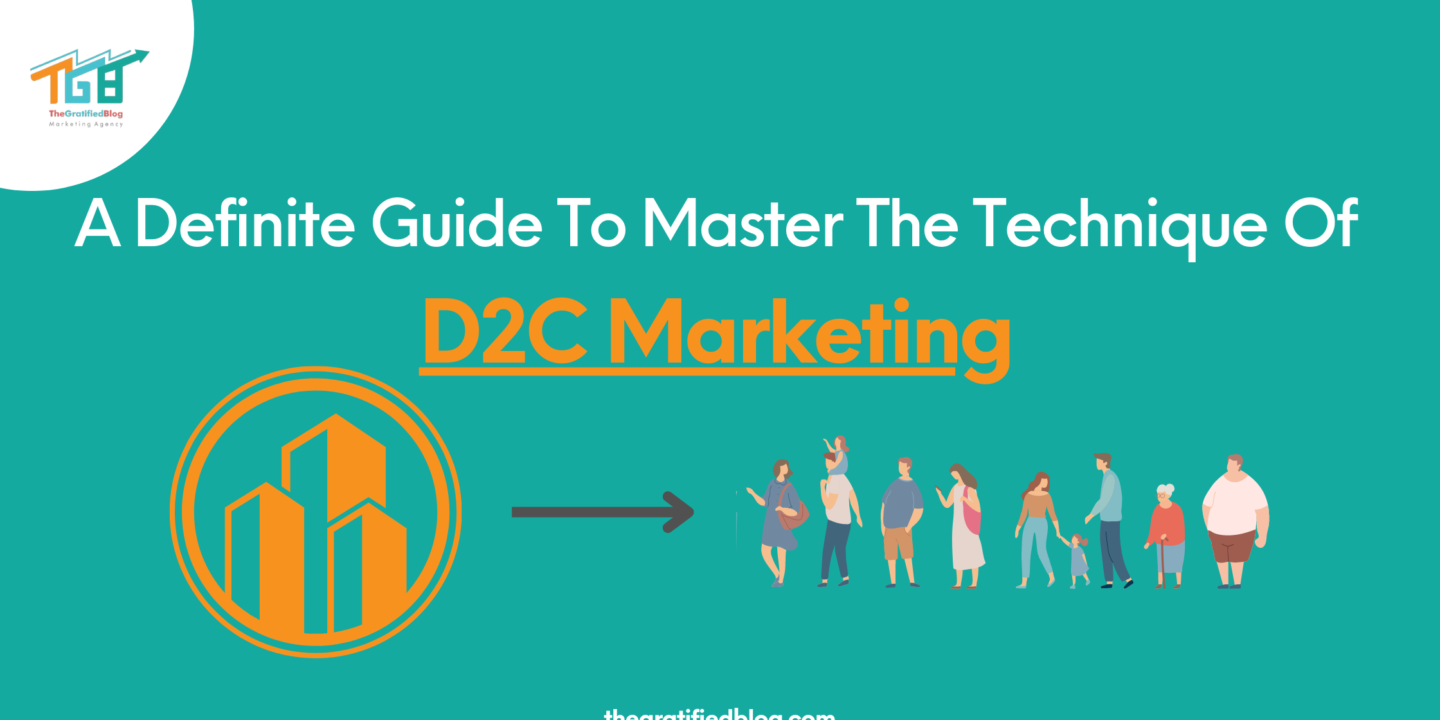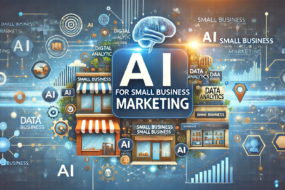
In today’s rapidly evolving business landscape, staying ahead of the competition requires innovative marketing strategies that directly connect with customers. One such strategy that has gained significant traction in recent years is D2C (Direct-to-Consumer) Marketing. By bypassing traditional intermediaries and establishing direct relationships with consumers, businesses are redefining how products and services are marketed and sold.
So, In this article, we will explore every single thing related to D2C Marketing;
So, let’s begin;
What Is D2C Marketing? & Its Significance In The Current Business Landscape
D2C marketing, or Direct-to-Consumer marketing, is an approach that involves businesses selling their products or services directly to consumers without the involvement of intermediaries such as wholesalers, retailers, or distributors.
This approach gives businesses more control over the customer experience, pricing, and branding, enabling them to gather valuable customer data.
Now, let’s discuss some of the significance in the current business landscape.
It has become increasingly significant in the current business landscape due to several factors.
- The rise of e-commerce and social media has made it easier for businesses to sell their products or services directly to consumers. This has led to a shift away from traditional retail models, with many companies now opting to sell their products online.
- Consumers are becoming more interested in buying products or services directly from brands rather than through intermediaries. This is partly due to a growing interest in supporting ethical and sustainable brands; consumers want a more personal connection with the brands they buy from.
- The use of customer data has become increasingly important in the current business landscape. D2C marketing allows businesses to gather valuable customer data, which can be used to identify trends, target specific audiences, and personalize marketing campaigns. This data can also improve products or services based on customer feedback.
Now, let’s delve into a comprehensive analysis of the advantages and disadvantages associated with the adoption of D2C Marketing.
Advantages And Disadvantages Of D2C Marketing
Advantages Of D2C Marketing:
- Increased control over branding and customer experience: By bypassing intermediaries, businesses can directly shape their brand image and ensure that the customer experience aligns with their vision. This control allows consistent messaging, tailored interactions, and a cohesive brand identity.
- Cost savings: Cutting out intermediaries in the distribution chain enables businesses to reduce costs associated with wholesale pricing, distribution fees, and retail markups. These cost savings can be passed on to consumers, resulting in more competitive pricing and increased customer value.
- Direct communication with customers: D2C Marketing facilitates direct and meaningful communication between businesses and their customers. This direct line of communication allows companies to build stronger relationships, address concerns promptly, provide personalized support, and gather valuable feedback that can drive product improvements and innovation.
- Valuable customer data: Businesses can access valuable data to inform strategic decision-making by interacting directly with customers. This data includes information about customer preferences, purchasing habits, and demographics, enabling businesses to identify trends, target specific audiences, and tailor marketing campaigns to maximize relevance and effectiveness.
Disadvantages Of D2C Marketing:
- Increased competition: The rise of D2C marketing has led to a more crowded marketplace, intensifying competition among businesses. Standing out from the competition requires companies to develop unique value propositions, compelling branding, and differentiated customer experiences.
- Building trust with customers: Without the reassurance of established intermediaries, businesses must work diligently to build trust and credibility directly with customers. This involves transparent communication, reliable product quality, excellent customer service, and leveraging social proof through reviews and testimonials.
- Managing customer data: D2C marketing generates a wealth of customer data, but effectively managing and protecting this data can pose challenges. Businesses need robust data management systems and stringent security measures to ensure compliance with privacy regulations and safeguard customer information.
- Identifying and targeting the right audience: D2C marketing relies on accurate identification and targeting. Businesses must employ sophisticated data analysis techniques and segmentation strategies to understand their customer base, identify target demographics, and tailor their marketing efforts to maximize effectiveness and ROI.
5 Key Strategies For Implementing Successful D2C Marketing Campaigns With Examples
- Build A Strong Brand Identity
In the realm of D2C marketing, building a solid brand identity is of paramount importance. A well-defined and consistent brand message helps businesses establish a unique and recognizable presence in the minds of consumers. It is a foundation for building trust, loyalty, and differentiation in a crowded marketplace.
To create a strong brand identity, businesses should clearly define their values, mission, and personality. This involves understanding their target audience and crafting a brand message that resonates with them. Consistency is critical, as the brand message should be reflected consistently across all channels and touchpoints, including website, social media, packaging, and customer interactions.
- Leverage Social Media
Social media marketing has emerged as a potent weapon in the arsenal of D2C marketing, offering businesses a direct and extensive means of engaging with customers. Through social media platforms, companies can create captivating content that captures the attention of their target audience, fostering meaningful interactions and building a sense of community around their brand.
- Personalize The Customer Experience
Personalization plays a crucial role in achieving success in D2C marketing. By utilizing customer data, businesses can customize marketing campaigns and deliver personalized experiences that resonate with individual customers. This approach allows businesses to understand their customer’s unique preferences, needs, and behaviors, enabling them to create targeted and relevant messaging that drives engagement and conversions.
- Offer Incentives And Rewards
In the D2C space, enticing and retaining customers can be achieved by implementing incentives and rewards. Businesses should contemplate incorporating loyalty programs, referral programs, and other incentives to drive customer engagement and foster repeat purchases.
By providing these value-added offerings, businesses can incentivize customers to choose their brand over competitors and encourage them to become brand advocates, spreading positive word-of-mouth and driving organic growth.
- Provide Exceptional Customer Service
In D2C marketing, businesses are responsible for delivering exceptional customer service directly to consumers, eliminating the role of intermediaries. This entails ensuring swift and efficient shipping processes, facilitating hassle-free returns and exchanges, and providing responsive customer support. Businesses can cultivate customer trust and credibility by prioritizing these aspects, fostering long-term loyalty and positive brand experiences.
Dollar Shave Club
Dollar Shave Club is a prime example of this marketing. The company started in 2011 by selling razors and shaving supplies directly to consumers through a subscription model. Their humorous marketing campaigns went viral, making the brand famous and recognizable, which led to billions of acquisitions by Unilever in 2016.

Warby Parker
It is an eyewear brand that disrupted the traditional eyewear industry by selling glasses directly to consumers at a lower price. By selling their products online and in their retail stores, Warby Parker cut out the intermediaries, reducing the cost of production and passing the savings on to the customers.
They also offer a home try-on program, which allows customers to try out glasses before making a purchase. Warby Parker has created a loyal customer base and has raised millions of funding since its launch.

Allbirds
Allbirds has revolutionized the direct-to-consumer footwear industry by leveraging its D2C model and creating an unparalleled customer experience.
With a streamlined approach, this one-of-a-kind brand stands out from the crowd. Boasting a valuation of over 1 billion dollars due to its innovation alone,
it is no surprise that Allbirds continues to make waves in the market each day with its unique take on fashion.

Conclusion: Now, we think it’s clear why D2C marketing is so popular. However, direct-to-consumer marketing can be challenging, with businesses needing to overcome logistical, data management, and customer acquisition challenges.
If you still have questions, please don’t hesitate to ask us in the comment section. We will be happy to answer you.
Thanks for reading 🙂








No Comments